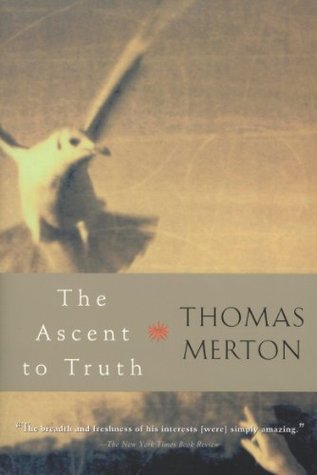More on this book
Kindle Notes & Highlights
Read between
December 12, 2019 - January 11, 2020
The world we live in is dry ground for the seed of God’s Truth. A modern American city is not altogether a propitious place in which to try to love God. You cannot love Him unless you know Him. And you cannot come to know Him unless you have a little time and a little peace in which to pray and think about Him and study His truth.
But morality is not an end in itself. Virtue, for a Christian, is not its own reward. God is our reward. The moral life leads to something beyond itself—to the experience of union with God, and to our transformation in Him. This transformation is perfected in another life, and in the light of glory. Yet even on earth man may be granted a foretaste of heaven in mystical contemplation. And whether he experiences it or not, the man of faith, by virtue of his faith, is already living in heaven. Conversatio nostra in coelis!
If the salvation of society depends, in the long run, on the moral and spiritual health of individuals, the subject of contemplation becomes a vastly important one, since contemplation is one of the indications of spiritual maturity. It is closely allied to sanctity. You cannot save the world merely with a system. You cannot have peace without charity. You cannot have order without saints.
Christ was not a wise man who came to teach a doctrine. He is God, Who became incarnate in order to effect a mystical transformation of mankind. He did, of course, bring with Him a doctrine greater than any that was ever preached before or since. But that doctrine does not end with moral ideas and precepts of asceticism. The teaching of Christ is the seed of a new life. Reception of the word of God by faith initiates man’s transformation. It elevates him above this world and above his own nature and transports his acts of thought and of desire to a supernatural level. He becomes a partaker of
...more
First of all, the contemplative life demands detachment from the senses, but it is not therefore a complete rejection of sense experience.
Mystical prayer rises above the natural operation of the intelligence, yet it is always essentially intelligent. Ultimately, the highest function of the human spirit is the work of the supernaturally transformed intelligence, in the beatific vision of God. Nevertheless, the will plays an integral part in all contemplation since there is, in fact, no contemplation without love. Love is both the starting point of contemplation and its fruition.
Furthermore, contemplation presupposes ascetic action.
Finally, mystical contemplation comes to us, like every other grace, through Christ. Contemplation is the fullness of the Christ-life in the soul, and it consists above all in the supernatural penetration of the mysteries of Christ.
Contemplative experience in the strict sense of the word is always an experience of God Who is apprehended not as an abstraction, not as a distant and alien Being, but as intimately and immediately present to the soul in His infinite Reality and Essence.
Saint John of the Cross is the leader of the “apophatic” theologians, the teachers of the “dark” knowledge of God. He completes and fulfills the tradition of the greatest contemplatives among the Greek Fathers—Saint Gregory of Nyssa, who really founded the apophatic school; Evagrius Ponticus, and Saint Maximus.


